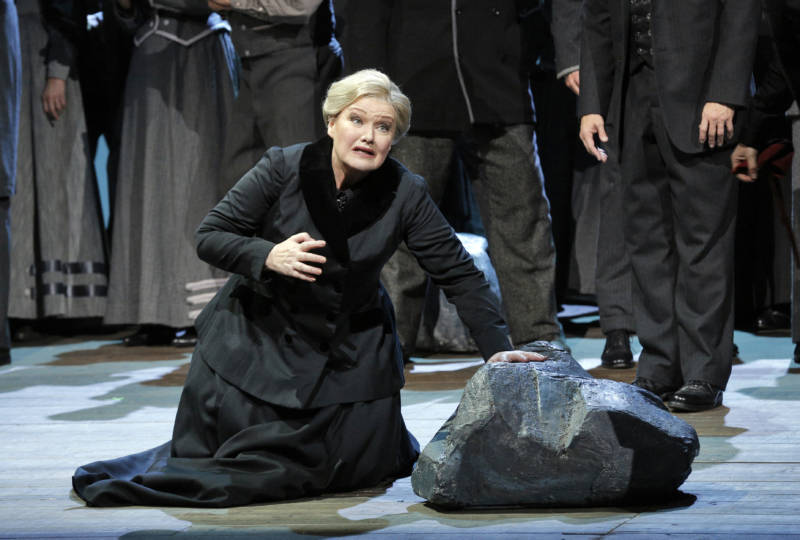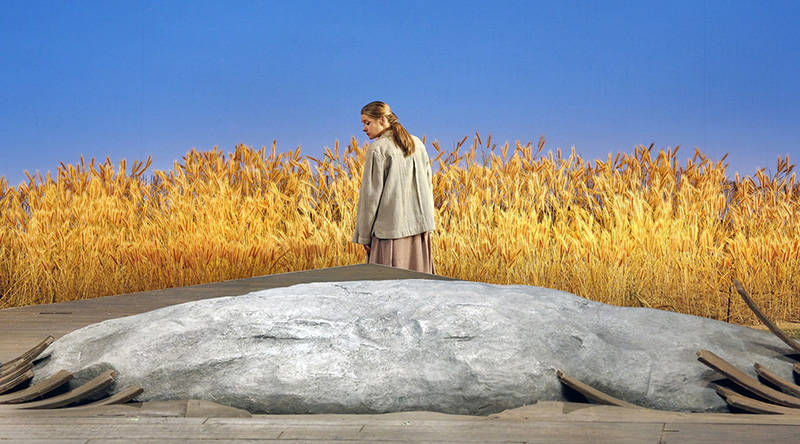In the wake of a fascinatingly gritty Carmen hampered by lackluster singing and a Don Carlo that counterbalances a great cast against boring staging, San Francisco Opera saves the best for last with a brilliant production of Czech composer Leoš Janáček’s Jenůfa, which opened Tuesday night.
Jenůfa is a tour de force, with sublime musicianship from the orchestra, a sleek triangular set, and above all, a cadre of world-class singer-actors.
Janáček’s most popular opera, first performed in 1904, takes place in a Moravian village in the 19th century. Like numerous other operas of the era that focus on unfortunate damsels (La Bohème, Tosca, Madame Butterfly…) its narrative follows the fate of a lithe, young woman whose life gets upended when she sleeps with the local miller’s ne’er-do-well son, finds herself pregnant out of wedlock, and then has to deal with her stepmother’s wrath.

The composer’s music involves a complex interplay of orchestra and vocal lines, punctuated by lots of whirling rhythms. There are many moments of gorgeous lyricism, too. In Act II, perhaps most notably, Janáček writes gorgeous, harrowing melodies for Jenůfa’s stepmother, Kostelnička, that draw out the complexity of the tough-minded yet tortured character upon whose extreme actions much of the ensuing plot-line is built.
San Francisco Opera’s production, directed by Oliver Tambosi, features a large stone, center stage. The ponderous rock first emerges from the ground, then dominates the stage in Act II, and is finally broken up pieces in the last act. Granted, the symbolism is way too obvious, as when the drugged Jenůfa sings of her head feeling like a stone in the second act. Yet the poetically abstract set design looks elegant without being slavishly descriptive.


